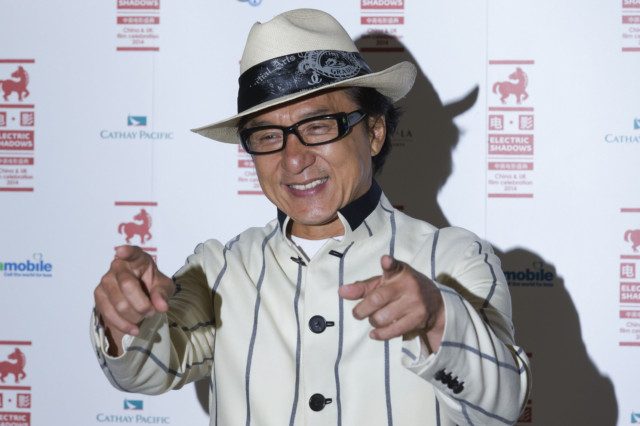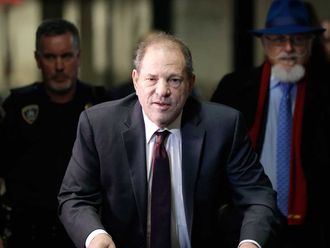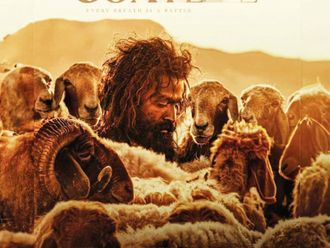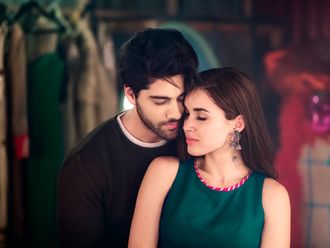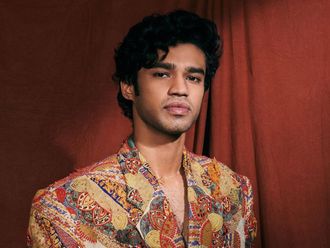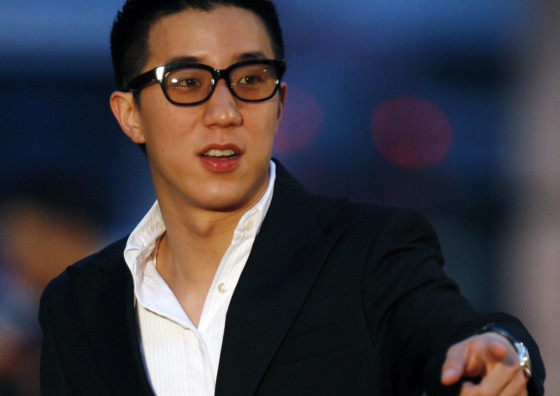
Jackie Chan apologised to the public on Wednesday over his son’s detention on drug charges in Beijing, saying he’s ashamed and saddened.
The Hong Kong film star wrote on his microblog that Jaycee Chan would have to face the consequences of his actions, but that they would do so together.
“Regarding this issue with my son Jaycee, I feel very angry and very shocked. As a public figure, I’m very ashamed. As a father, I’m heartbroken,” Chan wrote.
Jaycee Chan, 31, and Taiwanese movie star Kai Ko, 23, were detained last Thursday, becoming the latest high-profile celebrities to be ensnared in one of China’s biggest anti-drug crackdowns in two decades.
Police said both actors tested positive for marijuana and admitted using the drug, and that 100 grams of it were taken from Chan’s home.
“Jaycee and I together express our deep apology to society and the public,” Chan wrote.
Local media reported that the elder Chan and Ko’s father travelled to Beijing to meet with their sons this week. The reports could not be immediately confirmed.
Extending from his fame as an actor and singer, the elder Chan is a high-profile public figure in mainland China and was named by Beijing as an anti-drug ambassador in 2009.
“I hope all young people will learn a lesson from Jaycee and stay far from the harm of drugs,” Chan wrote. “I say to Jaycee that you have to accept the consequences when you do something wrong. As your father, I’m going to face the road together with you.”
Ko was part of an anti-drug campaign two years ago in which he appeared in a public service announcement declaring: “I don’t use drugs.” Chinese state broadcaster CCTV showed him weeping and apologising for setting a poor example and making “a big mistake”.
The younger Chan, whose mother is former Taiwanese actress Lin Fang-jiao, was raised in Los Angeles and has appeared in some 20 films, most of them low-budget Hong Kong and Chinese productions.
Also a singer and multi-instrumentalist, he has yet to enjoy anything like the global superstardom attained by his father. Most recently, the younger Chan had been working with famed Chinese director Chen Kaige on The Monk due for release next summer.
Ko, whose real name is Ko Chen-tung, became a sensation after his 2011 coming-of-age film You Are the Apple of My Eye. It earned him a Best New Performer award at the Golden Horse film awards in Taiwan, considered the most prestigious in Chinese-language cinema.
He played the boyfriend of one of the protagonists in China-produced Tiny Times 3.0, which appealed to young female audiences and knocked Transformers 4 from the No. 1 spot in the mainland’s box office last month.
Along with speculating about their entertainment careers, local media have questioned Chan’s and Ko’s continuing value as commercial endorsees. Such deals can be highly lucrative, but businesses in China demand their brand ambassadors maintain squeaky-clean images.
Jaycee Chan is accused of aiding and abetting other drug users, an offence that carries a maximum sentence of three years’ imprisonment. Ko is accused of using drugs, a much less serious accusation, but the potential penalty wasn’t immediately clear.
Chinese President Xi Jinping declared in June that illegal drugs should be wiped out and that offenders should be severely punished. The crackdown has snared more than 7,800 people in Beijing alone, according to police.
Detained previously was Gao Hu, who acted in the 2011 movie The Flowers of War. And Beijing performing arts associations and theatre companies have pledged to not hire any actors connected with drugs.


